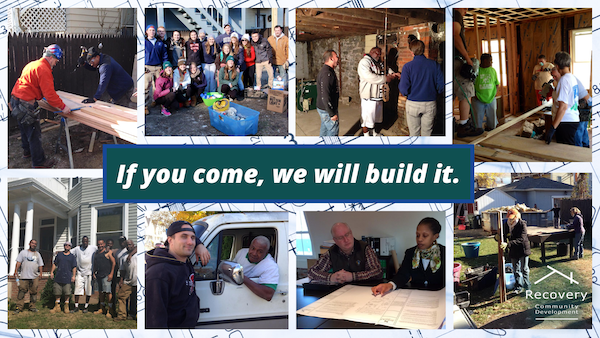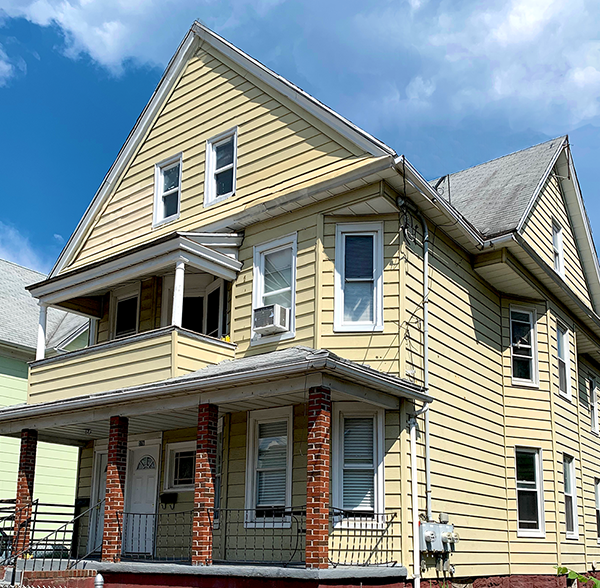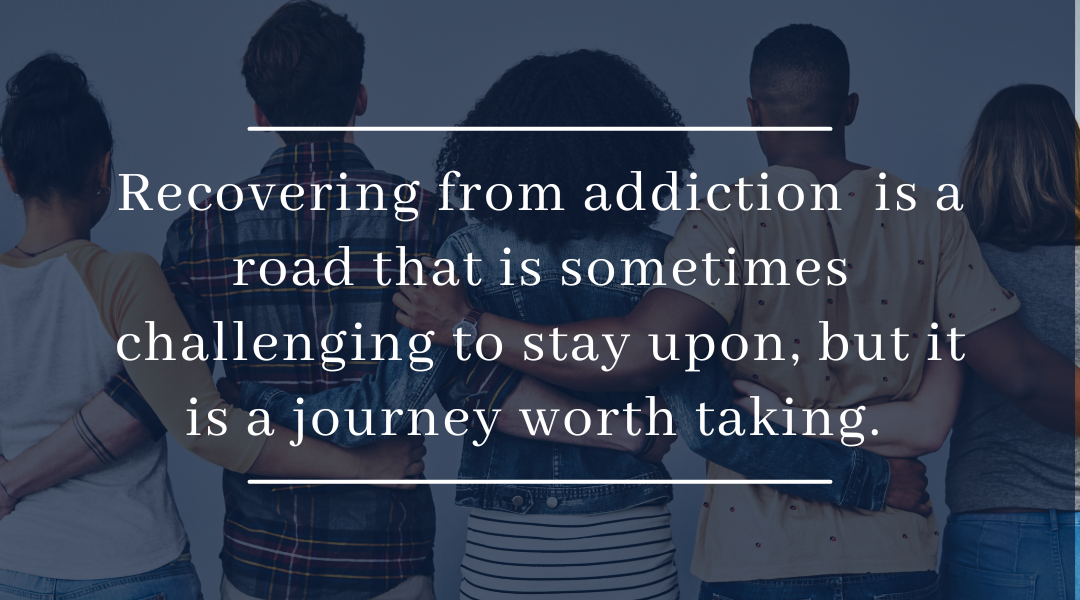Supporting the recovery journey from addiction is not an easy undertaking, or one that simply ends. It is a road that is sometimes challenging to stay upon, but it is a journey worth taking.
The word addiction holds a lot of negative weight in our society. And that makes it important to remind ourselves from time to time of the things that addiction is not.
Addiction is not a sign of moral failings or an indicator of ones value or lackthereof. It is not a choice. It is a hard road, and a symptom of deep societal trappings. It is a mire of stigmatized and justified dehumanized treatment.
In order to recover, one is faced with a lot of hurdles – chief amongst them, affordable, safe, supportive sober housing. We’ve been talking a lot lately about the current hurdles faced by Connecticut residents on the housing front, and though this topic is crucial to achieving stability, let’s take this opportunity to share that spotlight with another critical piece in long term recovery outcomes: finding a safe and supportive community.
We are social beings. In isolation, we wither. The same is true in terms of the recovery journey. When asking individuals in recovery what the hardest parts of recovery are, most brought up loneliness. When all of your connections of the past center around substances, or their presence triggers memories of past use, separation from one’s community is often necessary in the work to recover. And that is very isolating.
Restoring healthy connections and eliminating shallow friendships tied to addictive patterns gives those on the road to long term recovery far better odds to stay the course and overcome hurdles than a lone individual could ever hope to accomplish.
So how do you start? Bridging the gap between where you are, and where you want to be is often hard to visualize, let alone create actionable steps to achieving it. Keep reading to find ways of supporting the recovery journey.
Grieve the loss
There is a period – especially in those first months of recovery – when you mourn the loss of what was. It is okay to need some space to grieve for the loss of those connections, even if you can recognize the destructive nature of them, they were still a part of you. Even unhealthy connections can feel like a boon in the face of the perceived alternative – being alone. Recognize it; own it so that you are ready to take the next step forward.
Find new connections as a way of supporting the recovery journey
Joining a support group or online forums can help you begin to make connections with individuals who share in this difficult journey of recovery. The avenues in shred connection that the internet affords has opened up a lot of possibilities for people to reach out and talk to others on similar paths. Many of which can remain anonymous, and offer joviality, brevity, understanding and everything in between.
Find the means of connection that feel right to you and your journey. /r/stopdrinking: a support group in your pocket! Is a great touchpoint online community with a lot of heart.

Join us
Coming together to support safe and affordable sober housing is a big step towards creating long term recovery outcomes for members of our community. And we are excited to announce that Recovery Community Development is hosting its very first fundraising event on October 16th from 4 PM to 7 PM.
Get your Tickets here.
This will be an opportunity to celebrate our progress and learn about our plans to build affordable sober living communities.
Join us for food, fellowship, resident testimonials, and a short program outlining RCD’s continued growth and capital needs. We have been blessed with generous donors. Now, we need your support as we expand our reach in addressing the crisis of affordable housing.
Together we are…
Building Community.
Building Homes.
Rebuilding Lives.
Can’t make it, but still want to support RCD’s mission? No problem! You can make a donation to support the cause.

